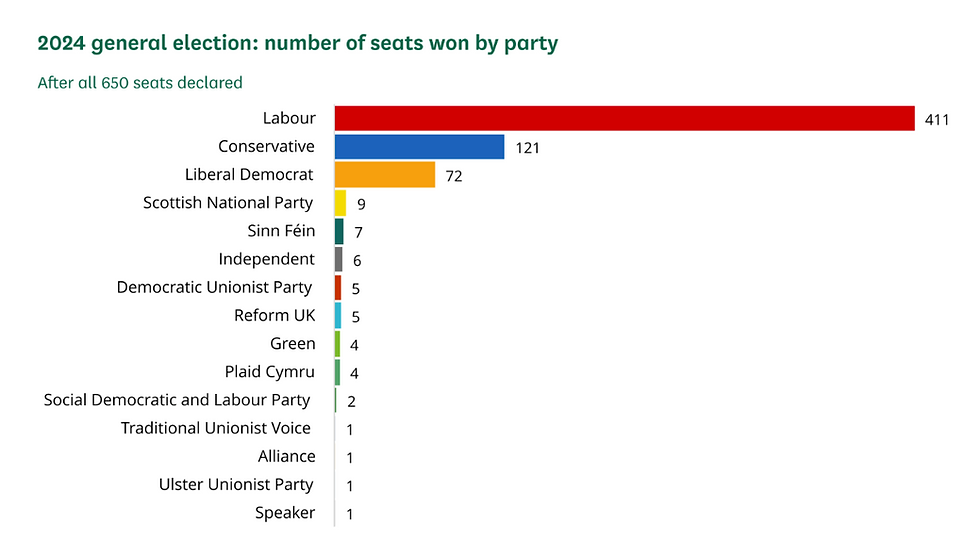Women & Work: The Nagging Issue of Gender Equality in The Workplace
- david42834
- Feb 16, 2022
- 4 min read

As we plan the return to the workplace and think about what work might look like after lockdown, this time offers a unique opportunity to supercharge progress on gender equity and think about what the future might hold for the modern-day working woman.
It is well known that men vastly outnumber women in senior leadership roles in most organizations e.g. only 5% of FTSE 100 CEOs are women[1]. This is a golden opportunity for ‘men-as-allies’ to purposefully leverage their newfound experience balancing work and responsibilities outside the office, to truly move the needle on full gender equity.
Male leaders must demonstrate vision, courage, and genuine collaboration with women to rework policies, practices and systems in order to create a new normal in our post-pandemic workplace, as well as in society. Before the pandemic, women did more unpaid work at home and were more likely to take time off to care for sick children or parents. Although many companies have implemented parental leave and flexible work arrangements to help, these accommodations are generally perceived to be for women alone. These perceptions fuel the motherhood penalty, reinforcing assumptions that women are not as committed to paid work and are distracted by children, school commitments, family matters etc — biases that limit women’s careers and perhaps even shape their aspirations from the outset.
Research suggests that men and women tend to hold widely different views on what level of job and annual salary they will reach during their lifetime. Men aspire to reach every leadership position at a higher rate than women. While only 10% of men expect to remain in an entry or middle management positions, the figure for women is more than double[2]. But why is this?
From an early age, children are encouraged to engage in gender-appropriate play; boys being more robust and physical and girls more sensitive and sociable. Men and women are often depicted in stereotypical occupations in the media, in advertisements and more widely in society. Although such socialisation experience influences both genders, it is presumed to have greater negative effects on girls because it tends to limit and restrict their options and achievements more so than boys.
Another way that women’s career experiences differ is that women are more likely to experience career interruptions and gaps in employment which can slow down their career progress. Women are more likely to need to undertake part-time work that has greater flexibility. This usually means that they have less visibility and exposure in organizations; another reason why women’s careers often do not progress as quickly as men’s.
Is the pandemic a turning point?
Crises are often catalysts for turning points in people’s lives, and also for societies. During this pandemic, you may have more time to think and evaluate where you are today and where you want to be in the future. Many would say we are approaching a long-overdue turning point, one that provides an opportunity to reorganise the way we work, in a way that disrupts traditional narratives and beliefs into new norms and values.
Here are our top tips for having a successful conversation about making that Step Up or Change in Your Career.
When considering asking for a pay rise or promotion, first research how your company handles them. Sometimes companies only give them at a certain time of the year or after a specific amount of time. Be prepared to defend your case — arm yourself with evidence to support why you think you deserve this. It is better to be over-prepared, so don’t be afraid to practice your pitch. If the answer is no, then stay calm. Agree on concrete steps on what you have to do to get to the next level, set out an action place with clear goals and timescales which might involve training or further education.
It has been reported that women on average have 3 times as many mentors in their lifetime as men. Ask yourself if you are really connected with the right people? Do they have influence and are able to help elevate and connect you with the right opportunities that you might not be able to access on your own?
Know your rights — research the rules/guidelines on gender pay, flexible working solutions and equality in the workplace. All businesses are required to have these policies and now more than ever, companies are working towards promoting fairness and opportunities for all.
SDG # 5
The landmark adoption of the Sustainable Development Goals (SDGs) by the United Nations in September 2015 attests to the increasing global consensus that achieving gender equality and empowering all women and girls is intrinsic to the holistic development of every country. Empowering women and promoting gender equality is crucial to accelerating sustainable development. Ending all forms of discrimination against women and girls is not only a basic human right, but it also has a multiplier effect across all other development areas.
When investing, the value of your investment may rise or fall and there are no guarantees you will get back all the capital you have invested.




Comments